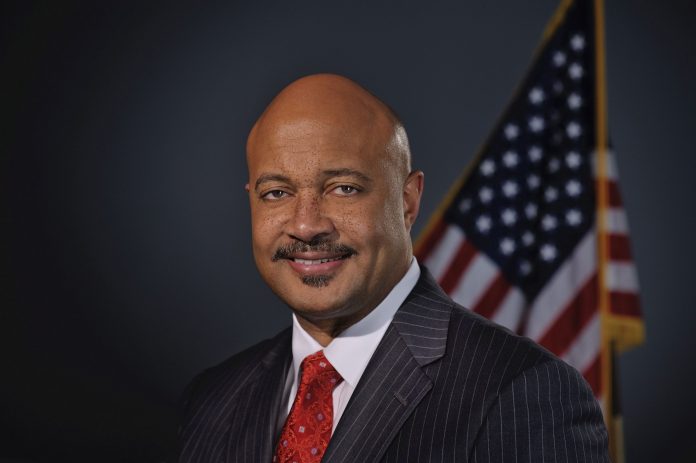|
||||||
|
||||||
|
||||||
|
||||||
|
||||||
|
||||||
|
||||||
|
||||||
|
||||||
|
||||||
|
||||||
|
||||||
|
||||||
|
||||||
|
||||||
|
||||||
|
||||||
HOT JOBS IN EVANSVILLE
Holcomb Visits Lebanon to See & Hear Regional Workforce Success Stories Firsthand
Gov. Holcomb  toured the Gene Haas Training and Education Center in Lebanon, Indiana and learned about the Vincennes University Haas Technical Education Center (HTEC) located there. He also participated in a roundtable discussion with state and local officials as well as education, community and business leaders. The goal of the visit was learn about successful, locally-developed programs to skill-up Hoosiers and put them to work in high-demand, high-wage careers.
Gov. Holcomb Public Schedule for Feb. 16 through Feb. 19
INDIANAPOLIS – Below find Indiana Gov. Eric J. Holcomb’s public schedule for Feb. 16 through 19, 2018.
Friday, Feb. 16, 2018: Columbus Learning Center Workforce Development Roundtable and Tour
WHO:Â Â Â Â Â Â Â Â Â Â Â Â Â Gov. Holcomb, state and local officials, education and business leaders
WHAT:Â Â Â Â Â Â Â Â Â Â Â The governor will participate in a roundtable and tour the facility, both of which are open to the media. There will be a media scrum with the governor at 2:30 p.m.
WHEN:Â Â Â Â Â Â Â Â Â Â Â 1 p.m., Friday, Feb. 16
WHERE:Â Â Â Â Â Â Â Â Â Columbus Learning Center
4555 Central Ave.
Columbus, IN 47203
Monday, Feb. 19, 2018: Purdue Polytechnic Institute at Anderson Workforce Development Roundtable and Tour
WHO:Â Â Â Â Â Â Â Â Â Â Â Â Â Gov. Holcomb, state and local officials, education and business leaders
WHAT:Â Â Â Â Â Â Â Â Â Â Â The governor will participate in a roundtable and tour the facility, both of which are open to the media. There will be a media scrum with the governor at 2:30 p.m.
WHEN:Â Â Â Â Â Â Â Â Â Â Â 1 p.m., Monday, Feb. 19
WHERE:Â Â Â Â Â Â Â Â Â Purdue Polytechnic Institute at Anderson
1920 Purdue Parkway
Anderson, IN
AG’s Office Contracts With National Firm To Consider Opioid Litigation
Olivia Covington for www.theindianalawyer.com
As numerous government agencies continue to fight the state’s growing opioid crisis, the Indiana Attorney General’s Office has contracted with a national law firm to help determine whether to pursue legal action against opioid manufacturers.
Attorney General Curtis Hill’s office announced Thursday the state has entered into a contract with Washington, D.C.-based Cohen Milstein Sellers & Toll PLLC to “bolster the state’s legal analysis and litigation experience in this complex area of opioid accountability.†The contract is partly contingent upon the firm’s employment of Betsy Miller, a partner and co-chair of the Public Client Practice Group who “represents state attorneys general and municipalities in civil law enforcement investigations and enforcement actions.â€
“Adding this firm to support our investigation is the next logical step in the multifaceted approach we have employed over the past several months,†Hill said in a statement.
In an interview with the Indiana Lawyer, Hill said his office has been reviewing “various options†for responding to the opioid crisis, including the possibility of suing prescription painkiller manufacturers for deceptive marketing practices. Nearly a dozen Indiana communities have filed similar lawsuits in Indianapolis and Washington, D.C., against opioid manufacturers over the last year.
While Hill said he could not yet discuss all of the options being considered, the office has been trying to assess the damage the drug epidemic has caused “from a legal standpoint and tracing that damage back to particular accountabilities.†The contract with Cohen Milstein contract will strengthen his office’s ability to analyze the implications of the opioid crisis and determine the best course of action, Hill said.
“The magnitude of the problem and the scope as it relates nationally is such that it really requires extraordinary efforts that we don’t have available on a regular basis,†he said.
Under the contingency fee contract, the state will compensate Cohen Milstein as follows:
• 25 percent of any recovery between $2 million and $10 million
• 20 percent of any recovery between $10 million and $15 million
• 15 percent of any recovery between $15 million and $20 million
• 10 percent of any recovery between $20 million and $25 million
• 5 percent of any recovery in excess of $25 million
Spokespeople for Cohen Milstein did not return messages seeking comment on the contract, which runs from Jan. 10, 2018, to Dec. 31, 2024.
Before Thursday’s announcement, Hill said his office had prioritized the drug epidemic through a three-pronged approach: prevention, enforcement and treatment. From a prevention and enforcement perspective, Hill said his staff office has been working with law enforcement to address the interdiction of drugs coming into the state and looking into the possibility of creating localized drug task forces.
Hill has also been promoting his Jail Chemical Addictions Program, which he launched in 2017 in Boone and Dearborn counties. The program is based on the notion that incarceration can be more effective in helping offenders break their addictions than traditional treatment programs.
As its efforts to combat the opioid crisis continue, Hill’s office could add to its opioid legal team again in the future, he said.
“I think it’s important to note this is just a phase in our overall legal strategy,†he said. “…With patience we’ll reach a conclusion, or at least an approach, that will be in the best interests of all Hoosiers.â€
Men’s Soccer inks 11 for 2018 campaign
University of Evansville men’s soccer head coach Marshall Ray led the Purple Aces to a second-straight 10 win season in 2017 and looks to keep the success rolling with the announcement of 11 signees to the program.
“We have a solid core returning from our 2017 team, but with the departures of our senior class there are roles to fill for the 2018 season,” said Aces head coach Marshall Ray.  “We have returning players who we will step up and assume those responsibilities, but also anticipate our 2018 class will come in and provide support and compete for time the day training camp starts. We are excited to get these guys to Evansville and have them continue their soccer careers on the north bank of the Ohio River.”
Evansville is coming off a 2017 campaign that saw Ray lead his squad to its second-straight double-digit win season and the 29th winning season in program history. Amassing an 11-8-2 record, the Aces advanced to the semifinals of the MVC Tournament before falling in penalty kicks. Â The back-to-back double-digit win seasons were the first since the 1995 and 1996 seasons. At the conclusion of the year, Evansville ended the season as the highest rated MVC program in the RPI.
The Aces’ 2018 signing class includes forwards Jakub Hall (West Lafayette, Ind.) and Riley Hogan (West Lafayette, Ind.), midfielders Ben Godden (Carmel, Ind.), Ryan Harris (Franklin, Tenn.), James Pearce (Memphis, Tenn.), Seth Strader (Calvert, Ky.), and Brian Zambrano (Des Plaines, Ill.), wingers Davis Peck (Gilbert, Ariz.) and Logan Muck (Independence, Ky.) and defenders Ryan Albrinck (Cincinnati, Ohio) and Johan Helander (Malmo, Sweden).
WELCOME YOUR 2018 ACES |
Seth Strader
Midfielder – Calvert, Ky.
Announcing our first commit of the 2018 signing class, please welcome @sethstrader21 to Evansville located on the north bank of the Ohio River. #TPSTpic.twitter.com/LwKCJJTS38
— UE Men’s Soccer (@UEAthleticsMSOC) February 15, 2018
Ray went back to his roots for Seth Strader, a midfielder from Marshall County High School in Benton, Ky.; the Aces’ head coach himself also starred for the Marshall County Marshalls. Strader comes to the Aces after amassing six goals and six assists in his senior year at Marshall County. As a junior for the Marshalls, Strader recorded 18 assists, placing him in the top 10 in assists in the state.
Ryan Albrinck
Defender – Cincinnati, Ohio
Announcing our 2nd commit of the 2018 signing class, please welcome @RAlbrinck to Evansville located on the north bank of the Ohio River. #TPSTpic.twitter.com/piTUnB1whL
— UE Men’s Soccer (@UEAthleticsMSOC) February 15, 2018
Joining Strader from the Midwest is Ryan Albrinck a defender from Cincinnati, Ohio. Albrinck was a three-year varsity starter at LaSalle High School where he played in the midfield as a sophomore and forward as a junior before moving to center back for his final prep season. At LaSalle, Albrinck recorded 29 points and eight game-winning goals in his career while helping lead the Lancers to GCL and district championships in 2017.
Ben Godden
Midfielder – Carmel, Ind.
Announcing our 3rd commit of the 2018 signing class, please welcome @ben_godden23 to Evansville located on the north bank of the Ohio River. #TPST pic.twitter.com/ExwPPv6ycj
— UE Men’s Soccer (@UEAthleticsMSOC) February 15, 2018
Another Midwest product joins the Aces in Carmel, Ind. midfielder Ben Godden. The Carmel High School product joins Evansville after being named team captain for at each level of Greyhounds soccer and earning recognition as Indiana Soccer Coaches Association Top Team Player. While with the Greyhounds, Godden helped lead Carmel to a sectional championship in 2016 and a semi-state appearance in 2015. In club action, Godden and Hoosier F.C. Elite Wolves 99 Boys were ranked the #1 club team in the state and earned an appearance in the State Cup semifinals.
Riley Hogan
Forward – West Lafayette, Ind.
Announcing our 4th commit of the 2018 signing class, please welcome @rhogan_20 to Evansville located on the north bank of the Ohio River. #TPSTpic.twitter.com/YLrsR52MXR
— UE Men’s Soccer (@UEAthleticsMSOC) February 15, 2018
The second Indiana native to join the Aces is West Lafayette, Ind. forward Riley Hogan. Playing for William Henry Harrison High School, Hogan scored eight goals and four assists and led the Raiders to a 2017 IHSAA 3A State Championship. Hogan was named all-conference and all-area, as well as academic all-state for his efforts. With his club team, Indiana Fire Developmental Academy, Hogan shined with two goals against Vardar Academy, the fifth-ranked club in the nation.
Jakub Hall
Forward – West Lafayette, Ind.
Announcing our 5th commit of the 2018 signing class, please welcome @jhall_23 to Evansville located on the north bank of the Ohio River. #TPSTpic.twitter.com/loI4u9bnhG
— UE Men’s Soccer (@UEAthleticsMSOC) February 15, 2018
Joining Hogan from William Henry Harrison High School is his teammate forward Jakub Hall. Born in Bratislava, Slovakia, Hall enjoyed a prolific prep career for both the Raiders and his club team, Boilers FC. In his high school career, Hall amassed 78 goals and 34 assists with 41 goals and 10 assists in his senior campaign with the Raiders, leading Harrison to an IHSAA State Championship. Hall was named first-team all-state in 2017 along with being named to the all-American game watchlist. The West Lafayette, Ind. native was the state leader in goals and points in 2017 and is the school record holder in season and career goals.
Logan Muck
Winger – Independence, Ky.
Announcing our 6th commit of the 2018 signing class, please welcome @LoganMuck16 to Evansville located on the north bank of the Ohio River. #TPSTpic.twitter.com/rXF3PWiIFs
— UE Men’s Soccer (@UEAthleticsMSOC) February 15, 2018
Continuing the string of Midwestern players coming to the Aces is winger Logan Muck. A native of Independence, Ky., Muck joins Evansville following a successful prep career with Newport Central Catholic and Kings Hammer Academy Red 2000. With Newport Central Catholic, Muck recorded 46 goals and 21 assists for 113 career points, placing himself in third in all-time goals and all-time points for his high school. For his efforts, Muck was named first-team all-state, first-team all-region, and first-team all-tournament for the Ninth Region Tournament as a senior, while also being named to the 2017 Cincinnati Enquirer Northern Kentucky All-Star first team. In his time with Kings Hammer Academy Red 2000, Muck helped lead his club to three state cup championships.
Brian Zambrano
Midfielder – Des Plaines, Illinois
Announcing our 7th commit of the 2018 signing class, please welcome Brian Zambrano to Evansville located on the north bank of the Ohio River. #TPSTpic.twitter.com/kxoXbMda61
— UE Men’s Soccer (@UEAthleticsMSOC) February 15, 2018
The final player joining Evansville from the Midwest is midfielder Brian Zambrano. The Des Plaines, Illinois native played his high school soccer at Wheeling High School and club soccer for Sockers FC Chicago. With Wheeling High School, Zambrano started 13 games and tallied five goals and seven assists. In club play with Zambrano in the midfield, Sockers FC Chicago earned the 2017 Illinois Men’s Metropolitan League title for the first time in league history and also captured the High School Boys 2000 NISL D1 League championship.
Davis Peck
Winger – Gilbert, Ariz.
Announcing our 8th commit of the 2018 signing class, please welcome @PeckDavis to Evansville located on the north bank of the Ohio River. #TPSTpic.twitter.com/4CNJdDihMG
— UE Men’s Soccer (@UEAthleticsMSOC) February 15, 2018
Moving out west, winger Davis Peck joins the Aces. A native of Gilbert, Arizona, Peck played his high school soccer for Seton Catholic Preparatory where Peck was named team MVC, offensive player of the year and all-section first-team after scoring 22 goals and recording 13 assists in 14 games. Peck saw further success with his club side, SC Del Sol. While with SC Del Sol, Peck was coached by former Evansville assistant Tony Colavecchia as Peck helped lead them to state championships in 2011 and 2016 and state runner-up finishes in 2010, 2014, and 2015. From 2010-11, Peck was invited to the United States Soccer Training Center and was part of the Olympic Development Program from 2010-13.
James Pearce
Midfielder – Memphis, Tenn.
Announcing our 9th commit of the 2018 signing class, please welcome @james_a_pearce to Evansville located on the north bank of the Ohio River. #TPST pic.twitter.com/1YQZ53XiXP
— UE Men’s Soccer (@UEAthleticsMSOC) February 15, 2018
Switching from the west coast to the south, James Pearce comes to Evansville from Memphis, Tenn. Playing for his high school, Christian Brothers, and his club team, Lobos Rush PremierÂ, Pearce saw success often. With Christian Brothers, Pearce was named an all-metro player in 2017 and helped lead his team to a state championship in 2016. In his club career with Lobos Rush Premier, Pearce took his team to the state championship four-straight seasons.
Ryan Harris
Midfielder – Franklin, Tenn.
Final announcement of the day is our 11th commit of the 2018 signing class, please welcome @RyanHarris239 to Evansville located on the north bank of the Ohio River. #TPST pic.twitter.com/hFy3z51kBD
— UE Men’s Soccer (@UEAthleticsMSOC) February 15, 2018
Joining Pearce from Tennessee is midfielder Ryan Harris from Franklin, Tenn. Harris played his high school soccer for Centennial High School, recording 10 goals and five assists during the 2016-17 season. For his efforts, Harris was named District Player of the Year and Offensive Player of the Year in 2016 and TSSAA District 11-AAA District Tournament Team three times over his career. For his club side the Tennessee Soccer Club, Harris helped lead TSC to a top-half of the table finish in the ECNL.
Johan Helander
Defender – Malmo, Sweden
Announcing our 10th commit of the 2018 signing class, please welcome Johan Helander to Evansville located on the north bank of the Ohio River.#TPST pic.twitter.com/RSvzB6DiVM
— UE Men’s Soccer (@UEAthleticsMSOC) February 15, 2018
Crossing the Atlantic to join the Aces is defender Johan Helander. A native of Malmo, Sweden, Helander joins fellow Malmo native Filip Johansson on Evansville’s roster for 2018. This is the second time in the last two seasons that the Aces recruited a student-athlete from Lunds BK to join the Aces with Johansson also starring for Lunds BK.
Softball travels south to Athens, Georgia
Aces to play in Red & Black Showcase
Another trip south will see the University of Evansville softball team head to Athens, Georgia this weekend for the Red & Black Showcase, which is being hosted by the University of Georgia.
Evansville will take on Winthrop to open play on Friday at 11:30 a.m. CT before facing the Bulldogs and Eagles on Saturday. Sunday will feature the Aces playing Samford in the morning before wrapping the tournament up with an ESPN3 contest against Georgia.
Freshman Eryn Gould batted .600 in her first week of play and earned MVC Newcomer of the Week honors for her efforts. Gould slugged 1.300 at the Mardi Gras Classic and had six hits in 10 plate appearances while hitting two doubles, a triple and a home run. She had three RBIs and four runs scored while getting on base 63.6% of the time; her top game of the weekend came against Samford where she went 3-4 with three runs batted in and two runs scored.
Three freshmen (Eryn Gould, Lindsay Renneisen, Allison Daggett) started all three games in the opening weekend of action in Louisiana while Elyse Hickey made two starts. The four combined to hit three of the Aces seven homers of the weekend while accounting for 11 of the teams 25 RBI. Gould was named the league Newcomer of the Week on Monday. Renneisen hit a pair of home runs over the weekend including a long ball in the first at-bat of her college career. Daggett batted a solid .250 while drawing three walks while Hickey hit a 3-RBI double in her first game against Samford.
Brittany Hay shifted from shortstop to the outfield and made the adjustment look easy in the first week of action, notching four putouts while hitting .375 at the plate. She recorded her first home run of the season in Friday’s opener against Samford while notching two hits, three runs and three RBI.
Morgan Florey has been Evansville’s top pitcher over the last two seasons and appears to be in midseason form already. She made the start in the win over Eastern Illinois and pitched all five innings allowing just two hits while striking out 11 batters.
UE’s opening opponent – Winthrop – starts their season Friday and did not play last weekend. Georgia is currently ranked 17th in the nation and has gotten off to a 4-1 start in last week’s Kajikawa Classic in Arizona. The Bulldogs picked up top 25 wins over 15th-ranked Utah and #19 BYU. Their only defeat came to Oregon, who was ranked third. Samford stands at 0-5 and fell to the Purple Aces last Friday, 14-6.
VANDERBURGH COUNTY FELONY CHARGES
 Below are the felony cases to be filed by the Vanderburgh County Prosecutor’s Office today.
Carlotta Marquette Compton: Obstruction of justice (Level 6 Felony), Theft (Class A misdemeanor), False informing (Class B misdemeanor)
Tatianna L. Burnette: Domestic battery (Level 6 Felony)
Bobbye G. Childers: Assisting a criminal (Level 6 Felony)
Tyler Glen Whitson: Theft (Level 6 Felony)
Angel S. Smith: Assisting a criminal (Level 6 Felony)
Justin Jermaine Meriwether: Domestic battery (Level 6 Felony)
Lindsey Nicole Norris: Auto theft (Level 6 Felony), Possession of a controlled substance (Class A misdemeanor)
Brian R. Hogue:Â Conspiracy Dealing in methamphetamine (Level 2 Felony), Dealing in methamphetamine (Level 2 Felony), Possession of a narcotic drug (Level 5 Felony), Possession of a narcotic drug (Level 5 Felony)
Mary K. Harper: Possession of methamphetamine (Level 6 Felony), Possession of paraphernalia (Class C misdemeanor)
Jamie Louise Lohman: Domestic battery (Level 5 Felony), Battery against an endangered adult (Level 6 Felony)
Sauvaun Marquez Cunningham: Domestic battery resulting in serious bodily injury (Level 5 Felony), Battery resulting in serious bodily injury (Level 5 Felony)
Thomas Fritsche: Possession of cocaine (Level 6 Felony), Possession of marijuana (Class B misdemeanor)
Clinton Ray Guess: Possession of methamphetamine (Level 6 Felony)
Governor Eric Holcomb Directs Flags To Be Flown at Half-Staff
INDIANAPOLIS – Governor Eric J. Holcomb is directing flags across the state to be flown at half-staff to honor the victims of the tragedy in Parkland, Florida.
Flags should be flown at half-staff until sunset on Monday, Feb. 19, 2018.
Gov. Holcomb also asks businesses and residents to lower their flags to half-staff until Monday.
Attorney General Curtis Hill continues fight against opioid crisis with announcement of addition to his legal team
Attorney General Curtis Hill announced today he has expanded his opioid legal team, which is investigating various options under consideration by the State of Indiana, including litigation. The national law firm Cohen Milstein Sellers and Toll PLLC will bolster the state’s legal analysis and litigation experience in this complex area of opioid accountability, Attorney General Hill said.
“Adding this firm to support our investigation is the next logical step in the multifaceted strategic approach we have employed over the past several months,†Attorney General Hill said. “From my first day in office, we have prioritized much of our attention, energy and resources toward fighting this opioid crisis that is destroying Hoosier lives and devastating Indiana communities. These efforts include a deliberative and diligent commitment to holding all parties accountable for actions detrimental to our state. We will continue to evaluate our best avenue for securing and investing resources from those responsible to help addicted Hoosiers overcome substance abuse and rebuild their lives.â€
The agreement with Cohen Milstein calls for the firm to be compensated contingent upon an award of damages. The firm has offices in Washington, D.C.; Chicago; Denver; New York City; Palm Beach Gardens, Fla.; Philadelphia; and Raleigh, N.C.
The Attorney General will continue to manage the opioid legal team as it investigates whether to pursue litigation.
“As we prepare for the next potential phase, I fully anticipate further enhancing our team as necessary for maximum effectiveness,†said Attorney General Hill.
#





